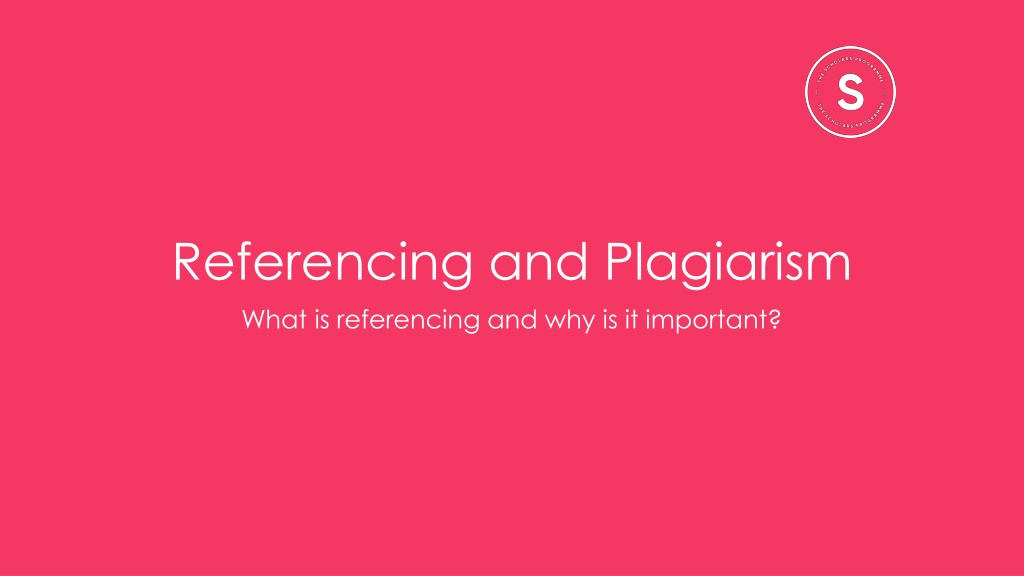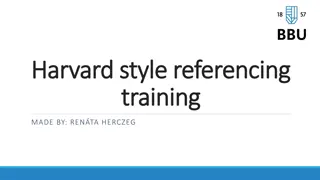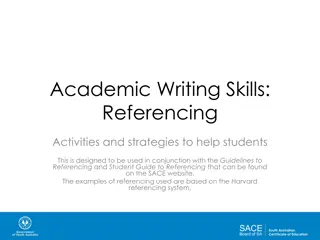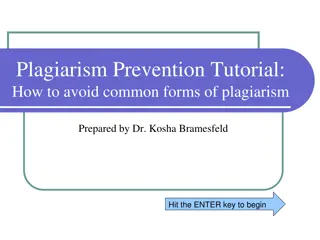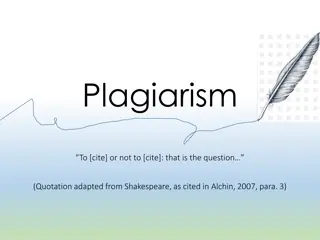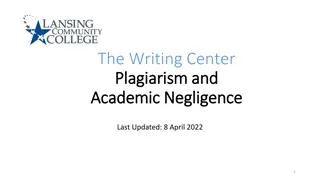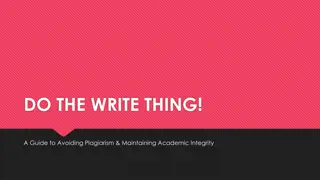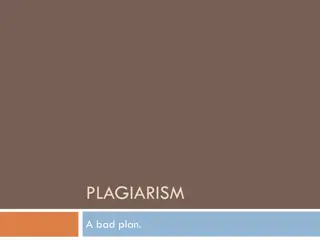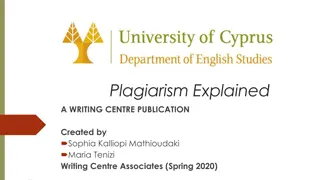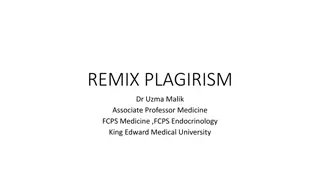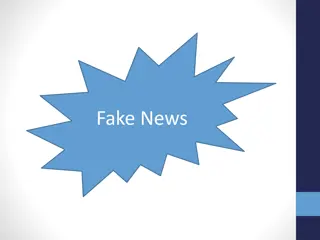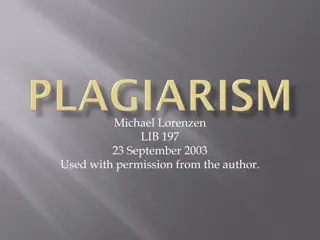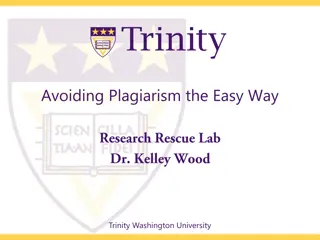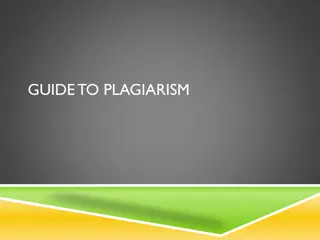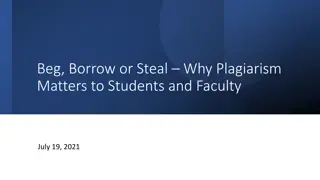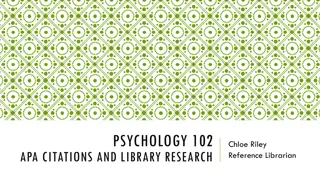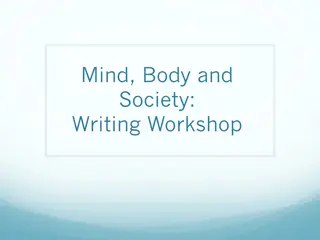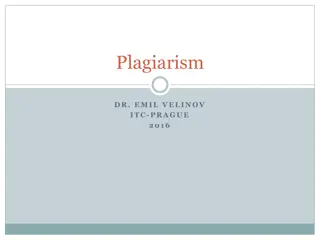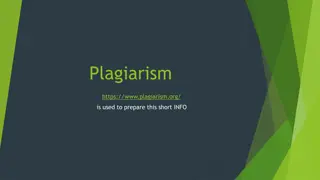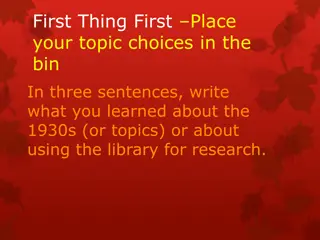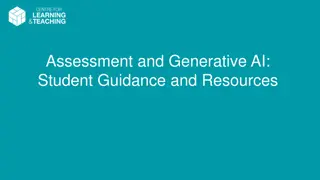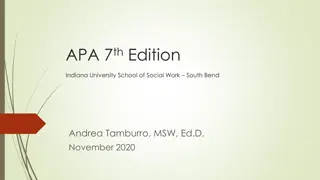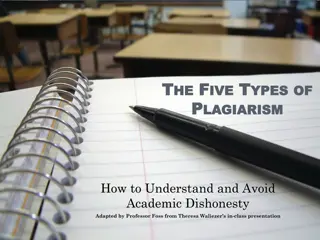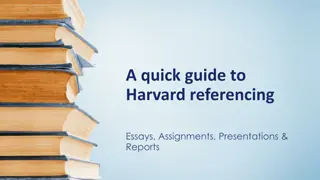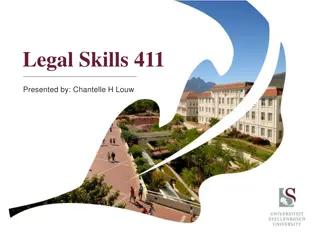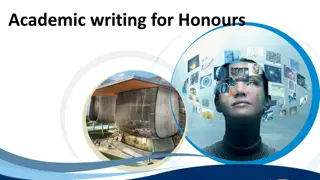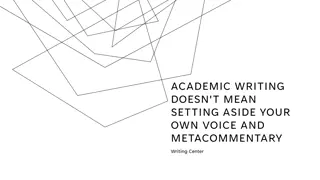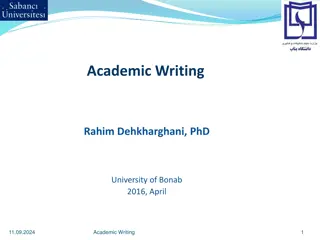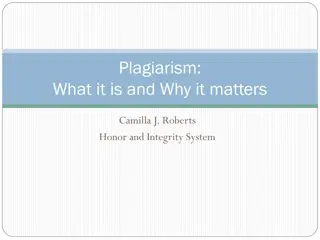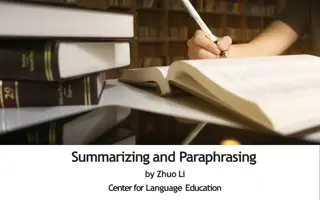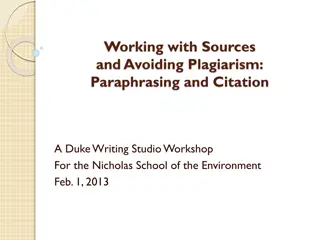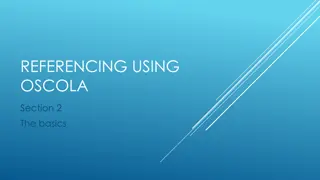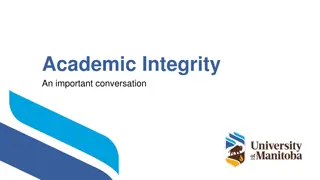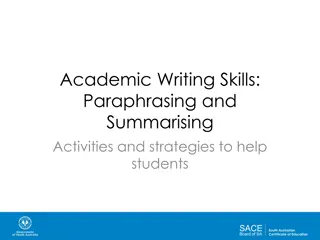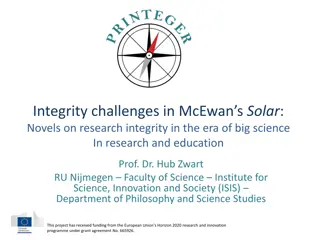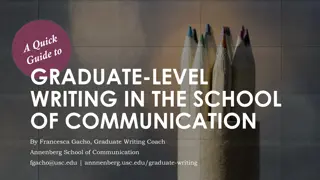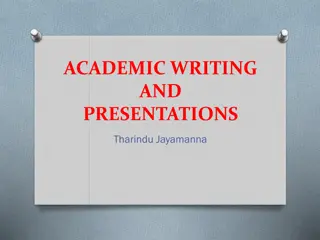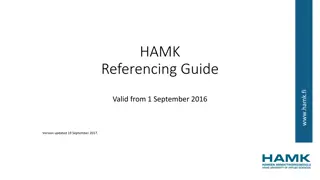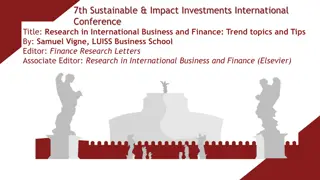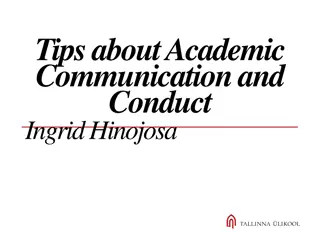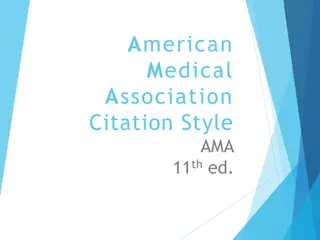Importance of Referencing and Avoiding Plagiarism in Academic Writing
Referencing is vital to give credit, avoid plagiarism, and guide readers to further resources. Plagiarism, whether reckless or deliberate, is considered cheating and must be avoided to maintain academic integrity. Understanding when and how to reference is crucial in academic assignments.
Download Presentation

Please find below an Image/Link to download the presentation.
The content on the website is provided AS IS for your information and personal use only. It may not be sold, licensed, or shared on other websites without obtaining consent from the author. Download presentation by click this link. If you encounter any issues during the download, it is possible that the publisher has removed the file from their server.
E N D
Presentation Transcript
Referencing and Plagiarism What is referencing and why is it important?
To backup own our work and ideas with more knowledge To acknowledge other people s hard work To avoid plagiarism If we use someone else s work, why do we need to say who wrote it? To direct our reader to where they can find more information on the subject To contribute to the subject and research field
To backup own our work and ideas with more knowledge To acknowledge other people s hard work To avoid plagiarism If we use someone else s work in our own, why do we need to say who wrote it? When we acknowledge that we have used other peoples work, this is called Referencing To direct others to where they can find more information on the topic To help others understand our work
What is plagiarism? Plagiarism is considered a form of cheating or copying someone else s work. It is when you pretend the work of others is your own. You can plagiarise accidentally (reckless plagiarism) or on purpose (deliberate plagiarism). Both of these are forbidden in university assignments, and could even result in someone being removed from their university course. How do I avoid plagiarism? 1. Understanding what needs to be referenced in your work 2. Referencing clearly and correctly
When do I need to reference? General facts and statements that are already common knowledge Direct quotations from somebody else s writing/work Facts, figures, or statistics e.g. a diet low in fruit and vegetable s is among the top mortality risk factors all over the world e.g. A health diet, exercise, and being a non-smoker, can increase life expectancy by 9-15 years e.g. A vegetarian diet is one that excludes meat YES YES NO
Tutors to Edit: Practise your referencing We recommend any of the following activities, and more information is in the below notes: Have pupils go through tutorials/work already covered in the handbook, and pick one piece of information they think is useful, to practice filling out the table on the next slide. This table is also available on a handout you can share with pupils. Prepare in advance, a citation/reference for a source relevant to your course that is relatively easy to understand. E.g. Salonen, Arto & Helne, Tuula, Vegetarian Diets: A Way towards a Sustainable Society , Journal of Sustainable Development 5:6 (2012), p. 10-24. Have the students try to break down the citation and pick out pieces of information they recognise. Then go through it with them and break it down together. Pupils can be asked to write a reference for a source they have used in the tutorial. The worksheet summarises key information about this skill to support any task or activity you create and also includes the table which they can start to complete. We also suggest that you refer to this when talking about the final assignment. The students can use the table to collect information they will use in their final assignment for putting together references.
Collecting information for a reference Details of where I found this, and who it is by What information have I found? Example: Being a vegetarian, a non-smoker, and doing regular exercise can increase life-expectancy by up to 15 years. Page 11 in the Journal of Sustainable Development, published in 2012. Article titled Vegetarian Diets: A way towards a sustainable society . Written by Arto Salonen and Tuula Helne.
